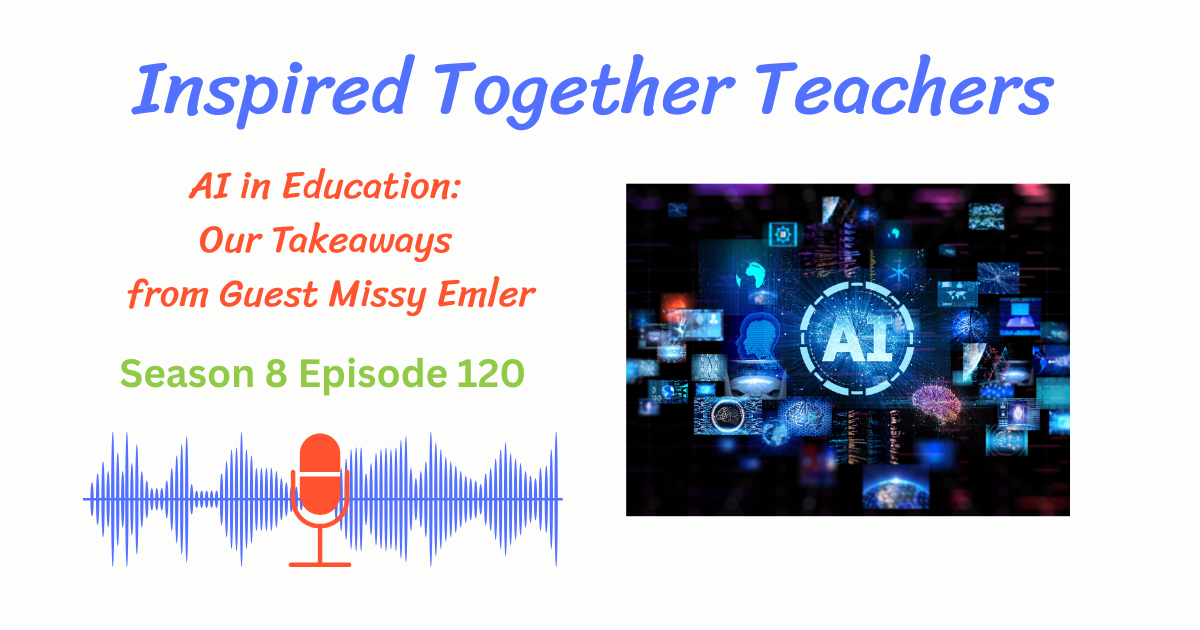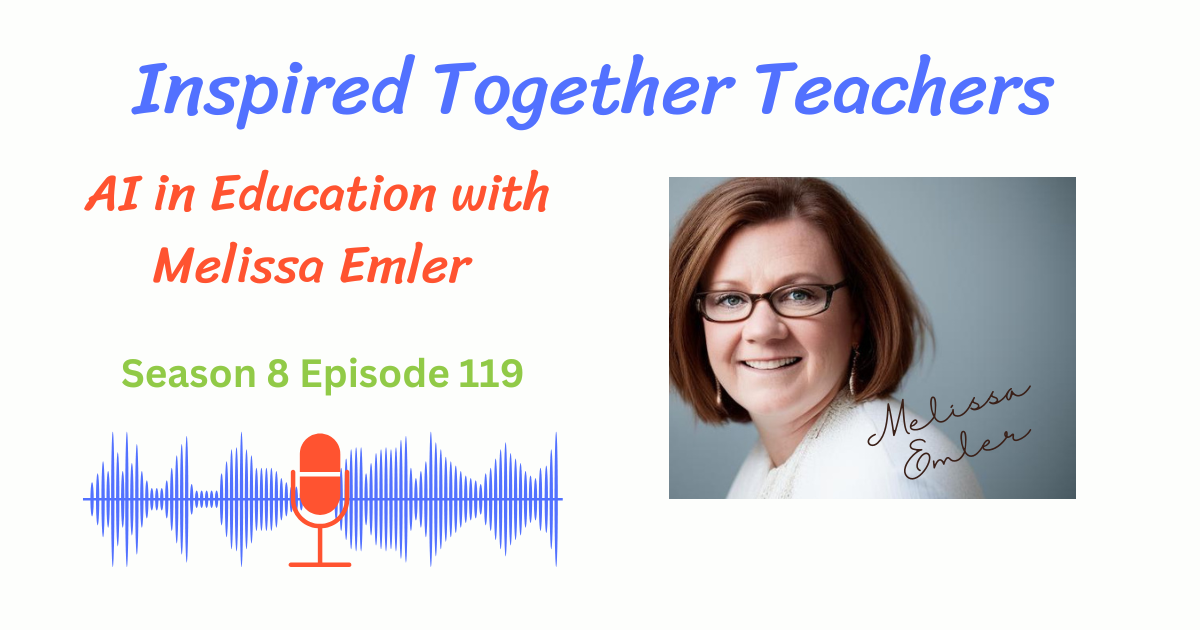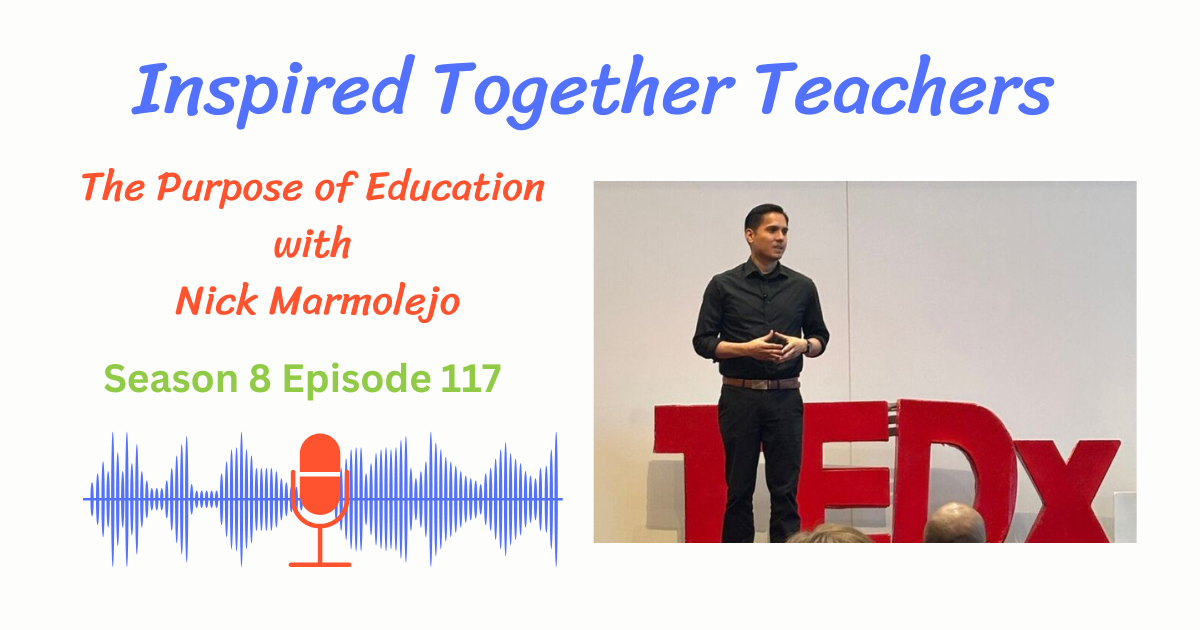Season 8 Episode 121
If you’re doing all the things—but still feel like you’re running out of time, check out this episode as we sit down with Teresa McCloy to talk about time shifts you can make to reclaim your schedule (and your peace).
Show Notes
Episode Summary
If there’s one thing every teacher wishes they had more of—it’s time. You’re juggling lesson plans, grading piles that never shrink, back-to-back meetings, and the endless demands of the school day. Then you head home… and the second shift begins—family, errands, maybe even a needy pet or two. Sound familiar?
If you feel like your life is a constant sprint from sunup to sundown, you’re not alone. But what if there was a better way? What if you could take back some control over your time—without dropping any of the balls you’re juggling?
Today’s guest, Teresa McCloy, has helped countless people do just that. She’s bringing time-saving strategies and time shifts that could change the way you approach your day. So if you’ve ever said, ‘There’s just not enough time,” this episode is for you.
In this episode
This is not a word-for-word transcript. Here, we highlight our topics of discussion. For the best experience, we recommend listening to the episode.
Introduction to our guest, Teresa McCloy
Hello, we’re very happy to welcome Teresa McCloy to the show today. Teresa is a business and life coach and CEO of The Realife Process. Teresa lives on a farm in Central Illinois, where in addition to running her business, she is an author, speaker, wife, mom, and grandmother.
Teresa’s motto is live from rest, not rush, which sounds like something we can all benefit from.
Teresa has been in a Mastermind group with Michele for many years. Both Paula and Michele belong to Mastermind groups, where they meet regularly to share strategies about our work and our lives. We highly recommend being a part of a group of likeminded individuals that can help you live with intention.
Living Like Your Hair’s on Fire
On her web page, Teresa writes, “ I had tried it all–every book, every software, and every calendar/planner—to help me be more “productive.” She tells us how she was addicted to productivity and self-help. After years of living life with her hair on fire, she had to make a change.
She was in a place of thinking that if she just learned that one perfect thing, her life would be different. She didn’t find that. There is no magic formula. What is required is to do some deeper work to discover what really matters to you. Then there are frameworks and processes that we can follow, but it has to begin with aligning to our inner real self.
You need to understand that if you say yes to one thing, you are saying no to something else. We want to do all of the things.
Teachers are givers they want to do everything for everyone. It causes a lot of stress.
The Realife Process and Aligning Time with Values with a Time Shift
Teresa is known for The Realife Process- real work, real life, real self.
This is very aligned with our work at Inspired Together Teachers, where we use the motto, work life, home life, best life.
She discussed her inverted triangle model. When we are out of alignment, we are like a tipping triangle. Our real self is perched at the bottom, in a very unstable balance. If we flip the triangle over so that the triangle is stable, we start with our real selves, then focus on our real lives and then our real work. The key is aligning with our real selves rather than building our identity and life around the work first. When the triangle is flipped upside, that is were burn-out happens.
We need to do some hard work with self-reflection. Do we know what we want and what we need? We might need a shift in our thinking.
The question is not what do you want to do, the focus should be on who do you want to be. That is a mindset shift.
The hard part of this is that nobody can do the hard work of aligning with values for us. We need to do the work. If you are burned-out, you need to make it a priority to work on yourself, and take a deeper look at what you need.
This is not just giving yourself permission to take care of yourself; it is a necessity. You can not help others when you are exhausted. The self-care piece makes you able to take care of someone else.
Education today is in need of a lot of help. No one is coming to save education. We have come to believe that the only way we are going to save education is with the teachers, the people who are doing the work. In order for the teachers to be able to do that, they need to be healthy, strong, and grounded, doing work that matters in ways that are sustainable.
Time Blocking
One of the things that Teresa teaches is planning with time blocks. These time blocks include the following types of blocks.
Present Block: a daily block of time for self-care and or soul-care. This is where you rest, and renew. It could also be time for personal growth. It could be meditation, spirituality, a walk, whatever it means for you. This could be anything that brings life giving rhythms to your day. This is scheduled into your weekly calendar. For busy young teachers who have young children, it might be 30 minutes a few times a week. For others it might be daily. What’s important is to fit it into your life in whatever way is appropriate for the stage of life you are in.
People Block: This is a block that you schedule into your calendar where you can spend quality time with the people who are important to you. We get to steward time, and most of us would always chose to spend time with the people we love most. That might a be a spouse, a friend, or anyone who is special to you. Yet, the time for that doesn’t always happen. We can pre-decide to schedule this time. This is approximately 60-90 minutes and could be scheduled 3-5 times a week.
Project Block: This is time scheduled to do projects, whether work projects or home projects. It can be any kind of project, like cleaning out the garage. We don’t always find time to do these projects. The project block is focused time to work on your plans. You can schedule 30 minutes to work on your garage, or whatever so that it actually happens. Schedule 2-4 project blocks a week.
Prep Block: This 30-60 minutes block of time is set aside to do errands, make phone calls, or everyday tasks. For your prep blocks, try to group like items together such as making all your errands in on trip, or planning all the phone calls in one block. Pre-deciding how you want to spend your time will help you make sure the things that matter most to you get done.
Blocks can help you control how you use your time. If you let life happen to you, it will. You can also choose how to spend your time. When you choose, you control your time rather than letting outside things control your life.
Paula discusses a podcast she listened to with Bill Perkins, who talks about not saving your special things for later. You can’t get your time back, so spend it now with people and things that matter. We’ve linked to the podcast below.
Most of us get more things right that wrong, we may just need a little realignment.
Conclusion:
If people would walk away with one main idea from today, what would you want that idea to be?
Teresa says two things. The more that you can pre-decide, the better. She sits down on Fridays and looks at her calendar and asks, “what do I need to pre-decide for the next week or two?”. This allows her to find more margin in her day while also planning the things that are most important to her.
Remember you get choose whether you live from rest or rush. Rest comes from inside of you, from a place of peace and your intentional decisions. Rush is what is coming at you from the outside. You get to choose.
Learn more about Teresa or her work:
Find Teresa: https://www.therealifeprocess.com
Book: Do What Matters: Live from Rest Not Rush available on Amazon or wherever you like to get your books.
Quote:
Live from rest, not rush.
Teresa McCoy
Resources mentioned in this episode:
Find Teresa: https://www.therealifeprocess.com
Podcast: The Drive, Optimizing Life for Maximum Fulfillment with Bill Perkins
Related Episodes/Blog Posts:
Inspired Together Teachers podcast Episode 16 Real Self Care
Inspired Together Teachers podcast Episode 115 Mindfulness is Magic with Molly Schreiber
Connect with the Inspired Together Teachers Community:
Website: https:www.inspiredtogetherteachers.com
Instagram: Inspired-Together-Teachers
Facebook: Inspired Together Teachers
Inspired Together Teachers Network Facebook Group
Linked In: Inspired Together Learning
More About Inspired Together Teachers:
Are you a teacher struggling to balance your best work with your best life?
If you are dedicated and caring but often overwhelmed and exhausted, join us at Inspired Together Teachers. We’ll give you inspiration, strategies and tips that help you navigate life’s challenges as a stronger, more confident, and more joy filled person, both in and out of the classroom.
Inspired Together Teachers will give you practical tools to experience more of what matters most in your life.
Co-hosts Paula Schmidt and Michele Vosberg are award winning educators with the experience and skills to help teachers thrive in life and work. They’ve taught at all levels, worked with thousands of teachers, and conducted workshops around the world. They are also the authors of the #1 best-selling book The Inspired Teachers Journal: A Weekly Guide to Becoming Your Best Self.
Paula and Michele would love to have you to join them on their quest to live inspired lives.







